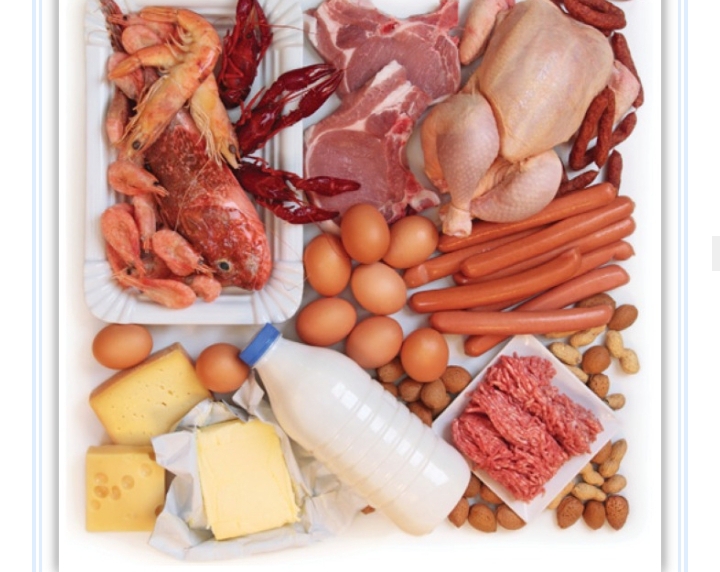Abstract
Obesity in America continues to be a major public health concern. Emerging scientific evidence suggests that a diet rich in high-quality protein is a beneficial dietary strategy to prevent and/or treat obesity. This paper provides a brief synopsis of the latest research regarding the effects of higher protein diets to improve body weight management and energy intake regulation. Specific focus on the effects of increased dietary protein on appetite control, satiety, and food cravings are also explored.
Overview
High protein diets have gained both support and criticism over the past decade when recommended as a dietary strategy to prevent and/or treat obesity. Although numerous studies have shown improvements in energy intake regulation and body weight management, others postulate reduced diet quality and harmful effects on bone and kidney function. This paper provides clinical evidence supporting the role of higher protein meals and/or diets in promoting overall health. The effects of increased dietary protein on appetite control, satiety, and food cravings are also explored.
Dietary Protein Requirements
Dietary protein is essential for human health, promoting growth and development and providing energy throughout the lifecycle. The recommended dietary allowance (RDA) for protein is set at 0.80g protein·kg−1·d−1 for healthy adults to prevent deficiencies. This quantity equates to approximately 48g of protein/d for women, 56g of protein/d for men, and is roughly 10% of daily intake. Although current NHANES data show that most Americans are meeting this quantity, additional benefits might exist with increased dietary protein above the RDA. As discussed below, recent studies have examined the effects of protein intake that is higher than the RDA. Such higher protein intake remains well within the acceptable macronutrient distribution range (AMDR) which has been set by the Food and Nutrition Board of the Institute of Medicine, National Academy of Sciences as 10–35% of daily intake as protein.
Body Weight Management
In a recent meta-analysis involving 24 randomized, controlled trials of 1,063 overweight and obese individuals, changes in body weight and body composition were examined following 12.1 ± 9.3 weeks of controlled, energy restricted diets containing either higher protein or standard protein intakes. Specifically, the higher protein diets included 1.07–1.60g protein·kg1·d−1 (27–35% of caloric intake as protein), whereas the standard protein diets contained 0.55–0.88g protein·kg−1·d−1 (16–21% of intake as protein). The meta-analysis showed that, compared to the standard protein diet, the higher protein version led to greater reductions in body weight (mean difference: −0.79 kg; CI: −1.50, −0.08; p<0.03) and fat mass (mean difference: −0.87 kg; CI: −1.26, −0.48; p<0.001) with increased preservation of lean mass (mean difference: +0.43 kg; CI: 0.09, 0.78; p<0.01). Another meta-analysis was also recently performed but included randomized controlled trials that contained prescribed isocaloric diets with and without energy restriction.The diets contained either higher protein (16–45% of daily intake as protein) or standard protein (5–23% of daily intake as protein). This meta-analysis showed that, compared to the standard protein diet, the higher protein version led to greater reductions in body weight (mean difference: −0.36 kg; CI: −0.56, −0.17; p<0.001), body mass index (BMI; mean difference: −0.37 kg/m2; CI: −0.56, −0.19; p<0.001) and waist circumference (mean difference: 0.43 cm; CI: −0.69, −0.16; p<0.001).
A large number of studies to date have examined the effects of higher protein intake in the context of controlled-feeding trials. However, two studies exist which provide useful data within a free-living, ad libitum feeding approach. As shown in Skov et al. overweight and obese adults completed a six-month dietary intervention consisting of either a higher protein (25% of daily intake as protein) or standard protein (12% of daily intake as protein) diet. Although protein consumption was tightly controlled, the participants were permitted to eat ad libitum. Over the six-month period, the higher protein diet led to greater weight loss compared to the standard protein diet (−8.9 kg vs. −5.1 kg, respectively; p<0.05) and greater fat mass loss compared to the standard protein diet group (−7.6 kg vs. −4.3 kg, respectively; p<0.05). Similar findings were also shown in another free-living, ad libitum feeding study by Weigle et al. This trial was a single arm, control trial. The volunteers completed two weeks of a weight maintenance standard protein (15% of intake as protein) diet followed by two weeks of a weight maintenance higher protein (30% of intake as protein) diet. For the remainder of the 12 weeks, the volunteers were permitted to eat ad libitum as long as protein intake remained at 30% of daily calories. The consumption of the higher protein diet containing 30% of intake as protein led to an average weight loss of 5 kg over a 12-week period, 76% of which was fat mass.
Another critical research question in this area of body weight management is whether increased dietary protein might be a key strategy to prevent and/or reduce weight regain following weight loss. As shown in Westerterp Plantenga et al. The addition of dietary protein following an energy restriction diet leading to approximately 10% weight loss led to a smaller amount of weight re-gain (17% weight re-gain) over a three-month period compared to no additional protein (37% weight re-gain, p<0.05). In fact, most of the weight that was re-gained with the addition of protein was fat free mass, whereas the weight re-gained when no protein was added was mostly fat mass. Similar findings were also evident in a follow-up study extended to six months of weight maintenance. Other studies which have extended out to even longer periods (i.e., 8–13 months) also report sustained weight and fat mass loss with higher protein diets compared to standard protein versions. Collectively, these data support the role of increased dietary protein to lead to greater loss of weight and fat mass loss and to support maintenance of that weight loss over the longer-term.
